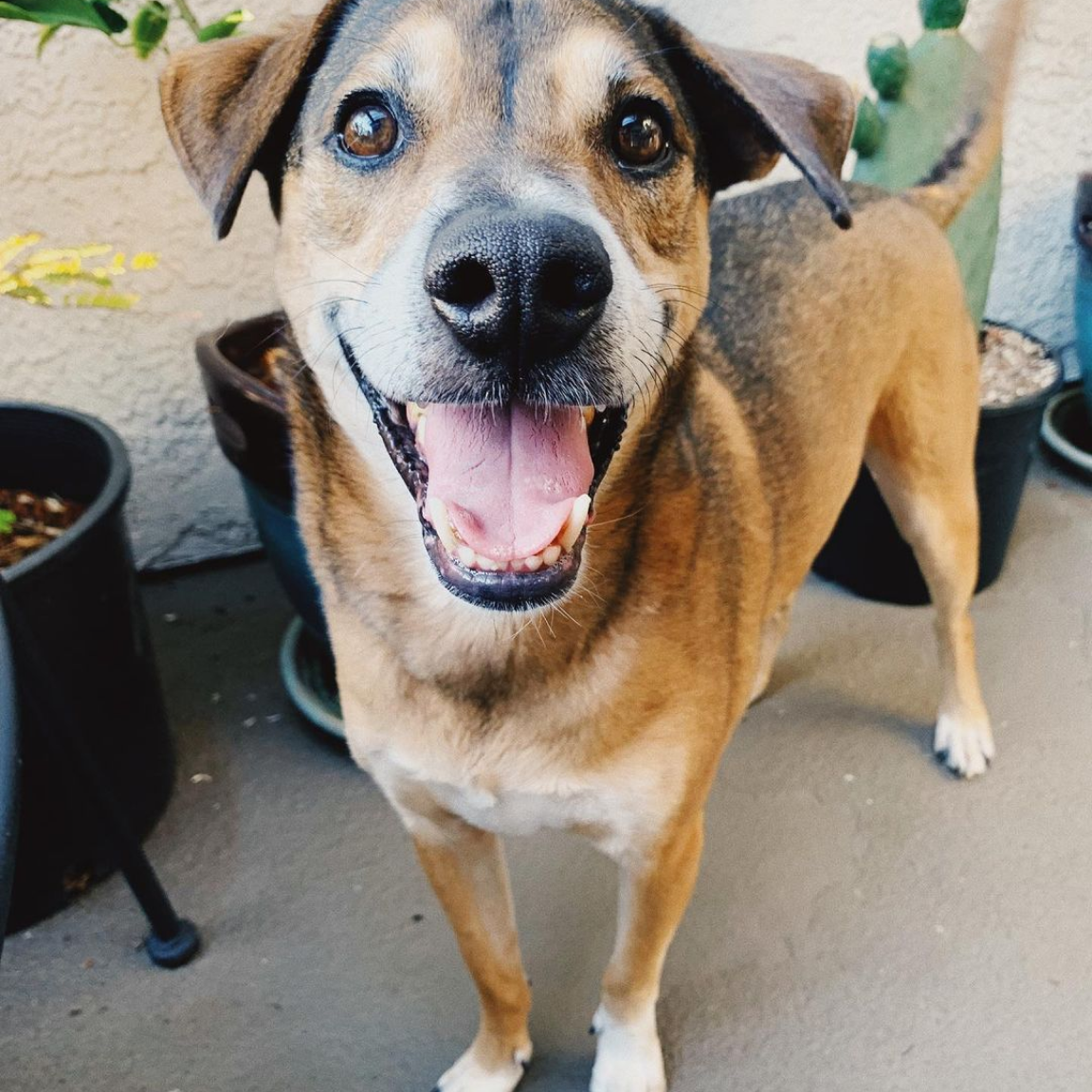
Why Is My Dog So Clingy All of a Sudden?
Key Takeaways
-
Sudden clinginess often signals stress: Common triggers include anxiety, illness, aging, or routine changes.
-
Separation anxiety requires attention: Look for destructive behavior, accidents, or distress when left alone.
-
Health issues may be the cause: Sudden clinginess paired with other symptoms warrants a vet visit.
-
Some breeds are naturally clingy: Lapdogs and working breeds often seek more constant companionship.
-
Encourage independence: Create a safe space, normalize alone time, and increase exercise/play.
-
Routine is key: Dogs thrive on predictability; gradual adjustments help during life changes.
So, your pup is by your side more often than usual, even though they’re usually more independent. Even though you may love spending extra time with your dog, it can be worrying to see a change in their behavior.
Why Is My Dog So Clingy All of a Sudden?
There are many reasons your dog may be clingier than usual. Some dogs are stressed or anxious, which can lead to separation anxiety. Age, changes in their environment, and health may also be factors. If your dog is “glued to your hip” suddenly, not to worry. You have options to help them regain their independence.
Here are the most common reasons dogs become clingy.
Learned Behavior
Dogs learn behaviors by picking up on patterns (and even words) as infants do. For example, when you get ready for work, they may realize that it’s time to go in their crate without saying anything. Your dog may be clingy because you’ve been more attached to them than usual.
As with other patterns, puppies that get extra attention may become afraid of being by themselves. They become dependent on your affection and less independent in return.
Aging
As dog's age, their bodies go through changes. They may lose their hearing and sight or experience cognitive decline. Their world becomes less and less familiar to them, so they cling to the person they trust the most for guidance.
Physical Pain or Illness
Just like toddlers who cling to their parents when they’re sick, dogs rely on us for comfort when they don’t feel well. Sudden clinginess, especially if your pup was previously independent, could be their way of saying, “Hey, something’s wrong.” Here’s what might be going on beneath the surface:
-
Arthritis or Joint Pain: Older dogs (and large breeds like German Shepherds or Labs) often develop stiff, achy joints. If your dog hesitates before jumping, limps after walks, or groans when lying down, they might stick close to you for reassurance. A vet can recommend pain management or supplements.
-
Hypothyroidism: Low thyroid hormone levels (common in Golden Retrievers, Dobermans, and Cocker Spaniels) cause weight gain, lethargy, and clinginess. A simple blood test can diagnose it, and daily medication often works wonders.
-
Cognitive Decline (Doggy Dementia): Senior dogs may pace, seem confused, or forget routines. Clinging to you becomes their anchor in a world that feels unfamiliar. Look for other signs like staring at walls or barking at nothing.
-
Tummy Troubles: Nausea, bloating, or an upset stomach (from dietary changes or infections) can make your dog seek extra comfort. Pair clinginess with vomiting, diarrhea, or refusing food? Call your vet.
-
Hearing/Vision Loss: As dogs age, their senses fade. A once-independent pup might follow you everywhere because they rely on you to navigate safely.
Red Flags: If clinginess comes with panting, aggression, excessive thirst, or lethargy, don’t wait—schedule a vet visit. Even subtle changes (like sleeping more) could signal diabetes, kidney disease, or pain.
Clingy Dog Breeds
Some dog breeds are more likely to be clingy than others.
Lapdogs
-
Cavalier King Charles Spaniels: Literally bred to warm laps in royal courts, these pups live for snuggles.
-
Chihuahuas: Tiny but fiercely loyal, they often bond with one person and shadow them everywhere.
-
French Bulldogs: Their playful, people-pleasing nature makes them clingy—they’ll follow you just to sigh dramatically at your feet.
Working & Herding Dogs
-
Border Collies & Australian Shepherds: These brainy pups “herd” their families by following room-to-room. Without a job, they may become anxious shadows.
-
Labrador Retrievers: Social butterflies, Labs hate being alone and will glue themselves to you for companionship (and snack opportunities).
-
German Shepherds: Protective and devoted, they’re prone to separation distress if left too often.
Rescue Dogs & Former Strays
Dogs with unstable pasts may become clingy out of fear of abandonment. Patience and routine help them trust that you’ll always come back.
Fun Fact: Some breeds (like Greyhounds or Shiba Inus) are naturally aloof—so if your clingy pup doesn’t match their breed’s reputation, health or environment could be the cause!
Separation Anxiety
Dogs can experience stress and anxiety the way humans do. Many people can relate to having co-dependency issues when they’re feeling anxious. So, if a dog is feeling stressed out, they may cling to their owners for comfort.
On the other hand, dogs are incredibly perceptive and can sense when humans are anxious. If your dog notices that you’re feeling uneasy or upset, it may stick by your side to comfort you.
Separation anxiety is when your dog feels exceptionally anxious when you leave, even if it’s just for a minute or two.
Signs you may see if your dog has separation anxiety:
- Easily scared
- Sleeping next to their owner
- Showing signs of aggression
- Destroying things when separated from their owners
- Pooping or peeing when their owners leave
- Pacing when they sense their owners are about to leave
- Whining as soon as their owners exit the house
- Getting stressed by more things, such as loud noises
Dogs that are clingy but don’t have separation anxiety may follow you around the house, but don’t panic as soon as you leave. If a dog starts developing separation anxiety, it will experience extreme distress if you go for any amount of time.
It may seem like your dog is throwing a fit if you leave, even if you’re checking the mailbox. They may destroy furniture, pee on your clothes, chew up shoes, and cry for hours.
If you suspect that your dog has separation anxiety, talk to a veterinary behaviorist to work with you and your dog to help manage it. Some dogs will even repeatedly lick you if they are struggling with separation anxiety.
Life or Routine Changes
As previously mentioned, dogs pick up on patterns and routines. Throughout their life, they depend on this sense of normalcy. If their world suddenly changes, they may cling to the person who gives them a sense of security.
If you plan on moving or getting a new pet, allow them to adjust to their new changes gradually.
How to Make Your Dog Less Attached To You
The best way to reduce clinginess in your dog is to create routines that allow them more independence. Here are some strategies that may help your dog not be so clingy.
Increase Exercise
Tired dogs are more well-behaved dogs. Ensuring that your pup has plenty of time to tire themselves out will keep them healthy and keep them less bored.
Make sure to give your dog the appropriate workout for their breed and size.
Add in More Playtime
Like with exercise, playtime helps your dog with boredom. If your dog is bored, it may cling to you because what else is there to do? Find interactive toys that keep your dog mentally stimulated without needing your constant attention.
Create a Safe Space
Dogs who have their own safe space to allow them to have a source of comfort other than their owner. Choose an area in your home where they have their own bed and engaging toys. When they start to cling, give a command such as, “Go to your safe space,” and then provide them with a treat when they do.
Normalize Your Movements
It’s incredible the little things dogs can pick up on. You may not even notice the little things you do that trigger your dog. Think about what your routine is like when you leave. You probably pick up your keys, grab your purse or wallet, or put on new clothes.
Take note of the routine you have before heading out of the house. Start doing the same pattern without leaving. This will help your dog not to associate these movements with something negative. Over time, they should realize that these activities don’t require attention.
Final Thoughts On Clingy Dogs
Dogs can become clingy for various reasons, from age to illness to changes in their environment. Once you determine what is causing your dog’s clinginess, you can start taking action to reduce it. If you struggle with figuring out what’s causing it, consult your dog’s veterinarian.






































